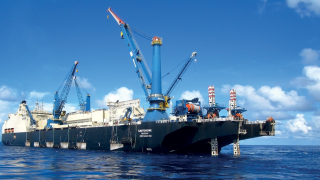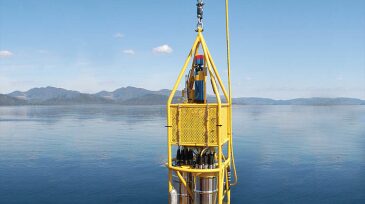Pipelines/flowlines/risers
The awards build on Tenaris’ role in earlier phases of the ultradeepwater Black Sea project.
Engineering, procurement, construction, and installation awards made at the end of 2025 are expanding Saipem’s role in Turkey’s two largest offshore gas fields, plus Saudi Arabia’s Berri, Abu Safah, and Marjan oil fields and Qatar’s North Field gas giant in the Persian Gulf.
The Gorgon Phase 3 project aims to counter declining reservoir pressure to sustain gas supplies to Western Australia’s domestic market and support LNG exports to Asia.
-
This paper describes a new direct electrical heating method in flexible-pipe systems. The method effectively expands the operational envelope of flexible unbonded pipes with greater control of hydrate plugs and wax precipitation by distributed heating along the entire pipe length,
-
Thermoplastic composite pipe (TCP) is a spoolable, fully bonded pipe with glass or carbon-fiber reinforcements. While most often used in deep water, the combination of a solid wall, spoolability, and corrosion resistance makes TCP attractive for production-flowlines in shallow water also.
-
Subsea processing is an evolving technology in ultradeepwater development and has the potential to unlock a significant amount of hydrocarbon resources. In this paper, the authors have reviewed the application of subsea systems in 12 deepwater fields and discussed the significance of each.
-
At the 2016 Gulf of Mexico Deepwater Technical Symposium in New Orleans, a presentation discussed the application of sensors and analytics in pipeline integrity management systems.
-
The Dakota Access Pipeline, which will connect the Bakken and Three Forks production areas, has received the regulatory go-ahead from the US Army Corps of Engineers.
-
This paper evaluates the feasibility of a number of production- and export-riser configurations for ultradeepwater applications.
-
This paper presents a multirate-test method to detect locations and sizes of blockages in gas pipelines.
-
An experimental study was conducted by use of a 6-in.-inner-diameter facility to analyze three-phase stratified wavy flow in horizontal pipelines.
-
Deepwater production has become more reliant on the integrity of subsea, umbilical, riser, and flowline (SURF) systems. A JIP explored cost-effective inspection and maintenance options.
-
This paper presents the challenges and obstacles faced in the use of a new technology for the plugging and deoiling of sections of unpiggable flowlines before decommissioning.













